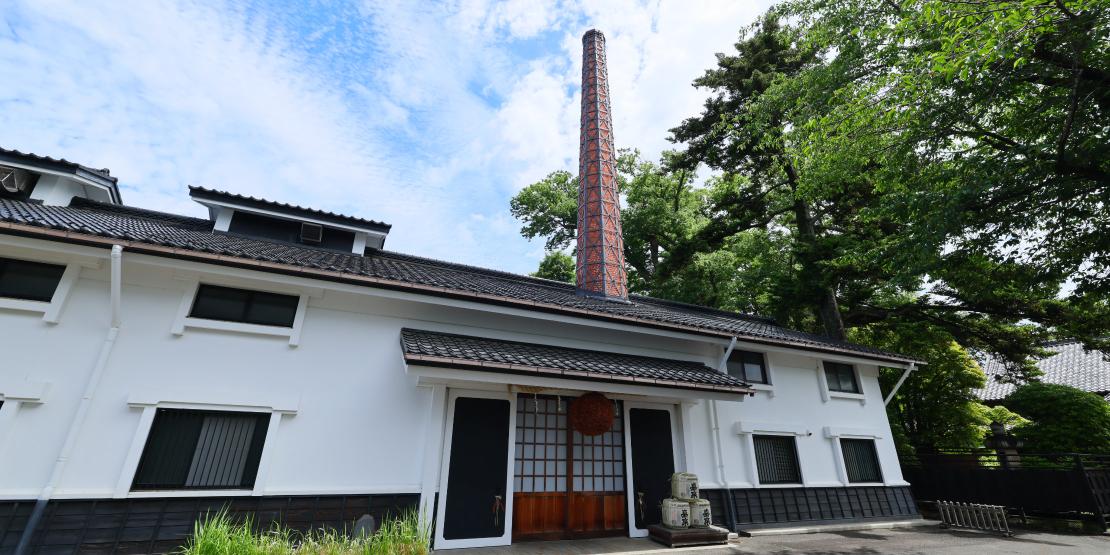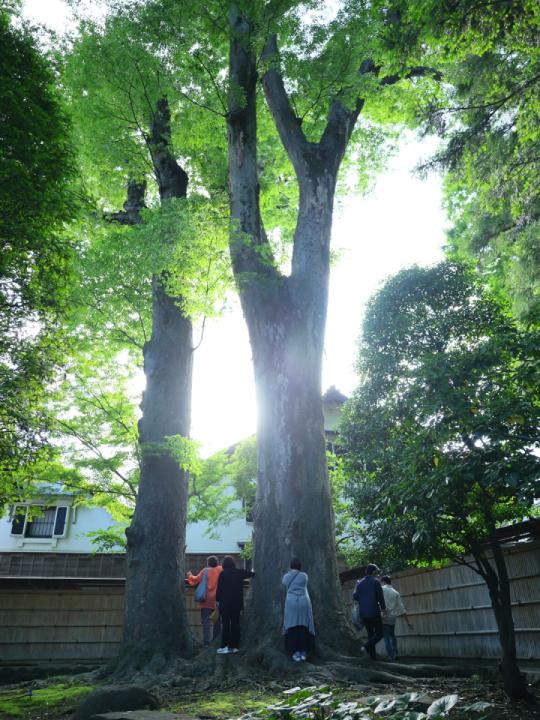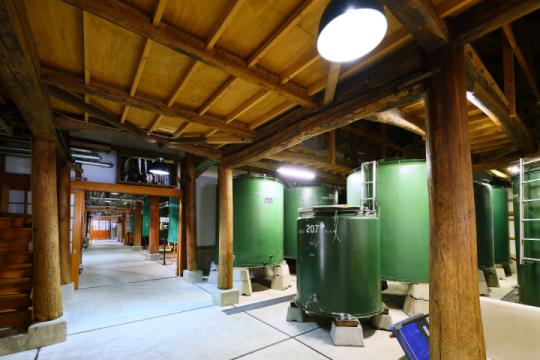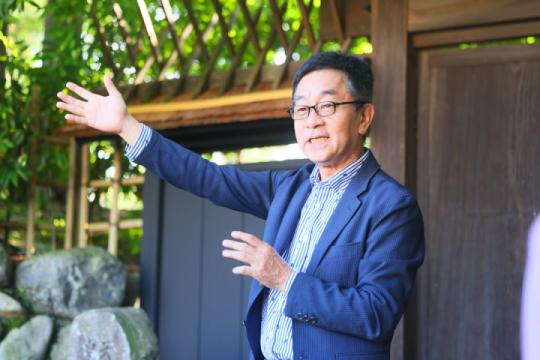
Tamura Sake Brewery has been producing sake in the city of Fussa for over 200 years, since the Edo period (1603-1867). The brewery’s premises are home to as many as five nationally registered tangible cultural properties.
Beyond the white plaster walls lies a stately earthen storehouse with an octagonal chimney, surrounded by a meticulously maintained garden. As soon as visitors step onto the premises, they are immediately enveloped in an air of serenity and quiet dignity.
ake Kasen (嘉泉)

The Tamura Sake Brewery was founded in 1822, during the fifth year of the Bunsei era, by the ninth-generation head of the Tamura family.
In the early days, wells were dug throughout the premises in search of the pure water essential for sake brewing—but none yielded what was needed.
Then, the founder heard, “where great trees grow, good water flows”. Trusting in this wisdom, he dug a well beside a majestic zelkova tree, said to be between 600 and 800 years old, there, he struck a precious vein of water—an exceptionally rare medium-hard spring, ideal for brewing.
Moved to tears, he exclaimed, “A splendid spring! A spring to be celebrated!”
From this joy, he named his sake Kasen (嘉泉) or “joyous spring”.
Brew with Care, Sell with Care

One of the foundational creeds handed down from the brewery’s first generation is: “Brew with care, Sell with care.”
Tamura Sake Brewery remains committed to prioritizing quality over quantity, devoting time and care to brewing, while carefully restricting sales to areas where they can directly oversee distribution and maintain quality.
Tamura Sake Brewery has been honored with consecutive awards at sake appraisal competitions for many years, a testament to their enduring dedication to quality.

Their creeds have been handed down through generations, and the brewery continues to implement various initiatives to ensure that their sake is crafted with the utmost care.
For example, specially designated premium sake such as ginjoshu is stored at -5°C immediately after pressing. To preserve optimal quality, they use custom-made storage tanks.